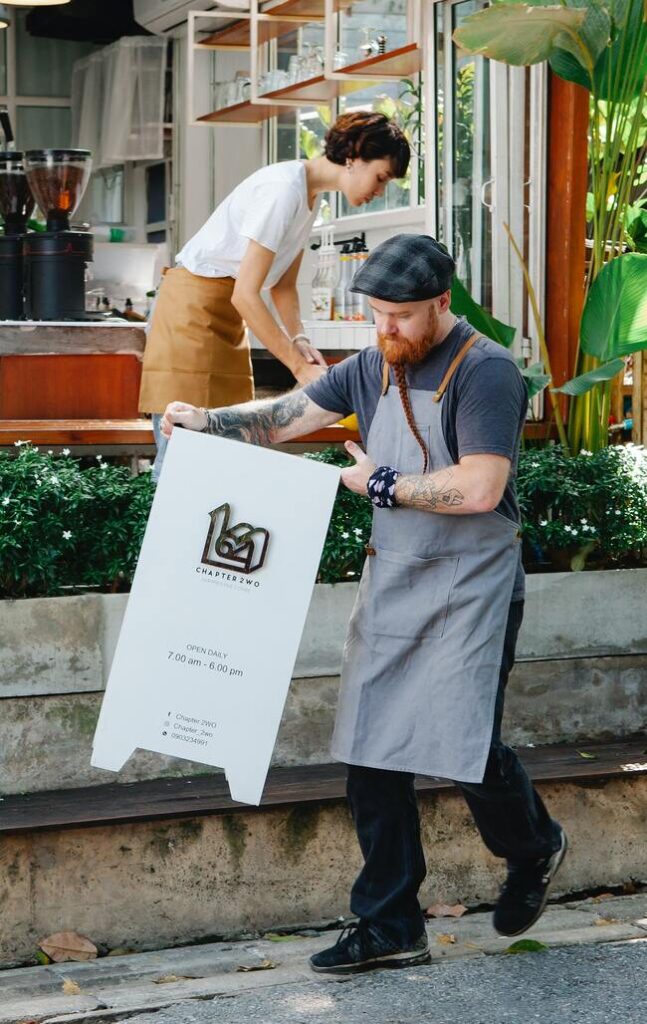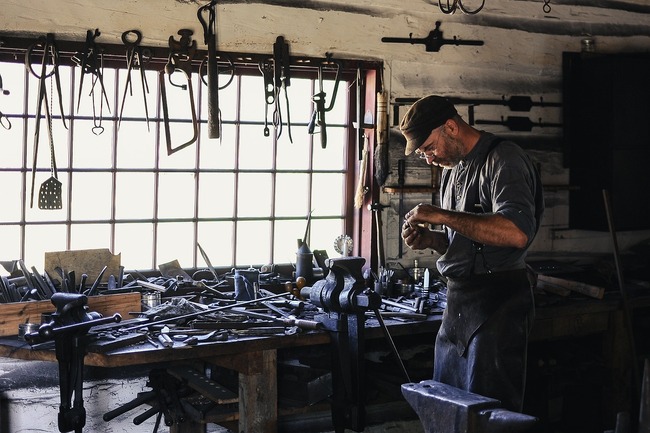1. Small Business Gives you a Better Price

Small business understand the importance of offering value to their customers, because small business people live in your community too. They don’t live in a corporate ivory tower in the heart of a capital city.
Small business people also want you to come back, and they offer you their best possible price (and service), so that you do.
My locally owned hardware business is a good example. The pricing on their products is better than the pricing at the large corporately owned hardware store in the area. Also, when I visit their store, I don’t find myself staring at empty shelves like I do when I visit the corporately owned option.
Believe me, I’m as tight as a fish’s asshole. I only support businesses, whether small or large that provide reliable customer service and offer good value. In determining value, I also of course weigh up the quality of the products offered relative to other options.
And interestingly, since I’ve become conscious of the importance of supporting small business, I find I’m actually spending less and getting better value than when I used to wander around aimlessly buying at large corporates and multi-nationals that handballed my money straight out of the state or the country.
I find that going smaller when I buy anything gives me better bang for my buck. This goes for many different purchases; food, gifts, hardware, plants, art, everything.
A good example of the benefits of buying from small business comes from a business woman I know. She created an innovative business organisation to support businesses in her area of rural Western Australia. The organisation is clear about what it stands for, and as a result it buys everything it needs from member businesses, or businesses that operate in this region of Western Australia. It only sources from businesses elsewhere if it can’t source the products and services it needs from within the region. This business organisation has grown from strength to strength over a 12 year time frame, and now employs staff. This strategy demonstrates how supporting local small business procurement strategy pays off financially, rather than the opposite.
2. Small Business Gives you Better Service

Quite simply, small businesses give you far better service.
As an example, I bought a petrol powered hedge trimmer from the local independently owned hardware store mentioned above. The hedge trimmer had been in the shop for a while, and instead of just selling it to me, the staff member filled it with fuel and took it outside to make sure it would start. Unfortunately, it didn’t start after a number of tries. So the store told me that they wouldn’t take my money for the hedge trimmer until they’d sorted out why it wouldn’t start, and told me they’d contact me in due course. They did contact me, explaining that the fuel used had been old and that after replacing this the machine was now starting on the first go.
When I went to collect the hedge trimmer, not only was it full of fuel and ready to go, but the store also gave me a free tin of 2 stroke fuel mix to apologise for the inconvenience.
This is a phenomenally different experience to the one I have when I visit the corporately owned hardware store in my area.
At this store, staff avoid me instead of approaching me to ask if I need help. The store frequently doesn’t have any stock of shelved items, and there are long delays in getting stock in. If I make the mistake of ordering something from them I get headaches and lots of wasted time. The staff and customers are all treated like a number, and neither feel any allegiance to the business at all.
3. Small Business buys you and your kids a job

It is a well known fact that small businesses create far more jobs than medium or large enterprises, and they create them in your community, not in some other country. Small business jobs are also by their very nature diverse, offering greater skill development opportunities for your kids than narrow jobs at large corporations.
So not only do you get a better price, better service and walk out of a shop feeling happier, you also benefit from knowing that you are driving increased economic and social prosperity in your community.
Because as well all know, the economic health of a community is a key driver of that community’s social health and future.
4. Small Business Creates an Economically Prosperous Community and a Better Community to live in

Buying from small businesses in your area grows the amount of money being circulated in it and increases economic prosperity. Local small businesses spend their money buying other goods and services within the community. In this way, the bang from each buck expands, with money growing as it moves through the community.
Even very small purchases have a significant effect. As an example, say a pensioner spends just $10 once a week buying coffee and lunch from a local café. Over an entire year, this pensioner’s purchases add up to $520 worth of gross sales for this local café. If just 39 other local pensioners also do this once a week, the local café has earnt $20,800 worth of gross sales.
Small businesses also create a better community in other ways. They are far more likely to give money or support to your local non-profit organisation or charity, if they possibly can. The article Why Shop Locally at www.locals4locals.com.au notes, “Anyone who has helped raise funds for a school or charitable organisation knows that it is significantly easier to source donations from locally owned businesses.” Small businesses know the local community organisations in their area and they understand the importance of supporting their community, so that their community supports them. Corporates give less money and/or support, and there are often long wait in getting approval on this.
Unique small businesses also attract visitors, tourists and more money to your community because they provide that “something different” that both locals and tourists are looking for. Not only this, but as the article Why Shop Locally at www.locals4locals.com.au notes, “The distinctiveness of your local community increases the overall satisfaction with where you live and the value of your home and property.”
Peter Kenyon of the Bank of Ideas gives a great example of the impact a small business can have on a community. He discusses the Beechworth Bakery in Victoria, which commenced in 1984 when Tom O’Toole bought a Café and Milk Bar in a heritage building in the country town of Beechworth. Tom has a fabulous business philosophy which is grounded in the belief that “If you don’t take care of the customer, someone else will.” Tom’s has driven exponential growth in his business through his work ethic and customer focussed approach. The bakery still bakes all of its own products but there are now a total of 8 Beechworth Bakeries in towns across regional Victoria and New South Wales, and the business employs nearly 300 staff in those communities.
In summary, where you spend your money does make a difference.
Of course, you can’t always buy everything you need from small businesses. But personally, I love seeing the direct positive effect I have on the world when I support a small business.
Perhaps I’m a bit odd, but I love knowing that I can influence the world around me through how and where I spend my money. I also love the businesses and organisations that have supported my business and given me opportunities.
Like a lot of us, I love directly rewarding someone’s hard work and initiative and supporting my local economy.
It doesn’t matter how little money you have. We have all gone through times in our lives when we actually have pretty much no money to spend on anything. Because you can still support Australian small businesses when you barely remember what it’s like to go shopping for anything other than groceries. For example, when other people ask what you want for your birthday or Christmas, you can direct them to small businesses. Also, even when you have the tightest of budgets, you probably still buy birthday and Christmas presents in some form, and you can still source these from small Australian businesses.
